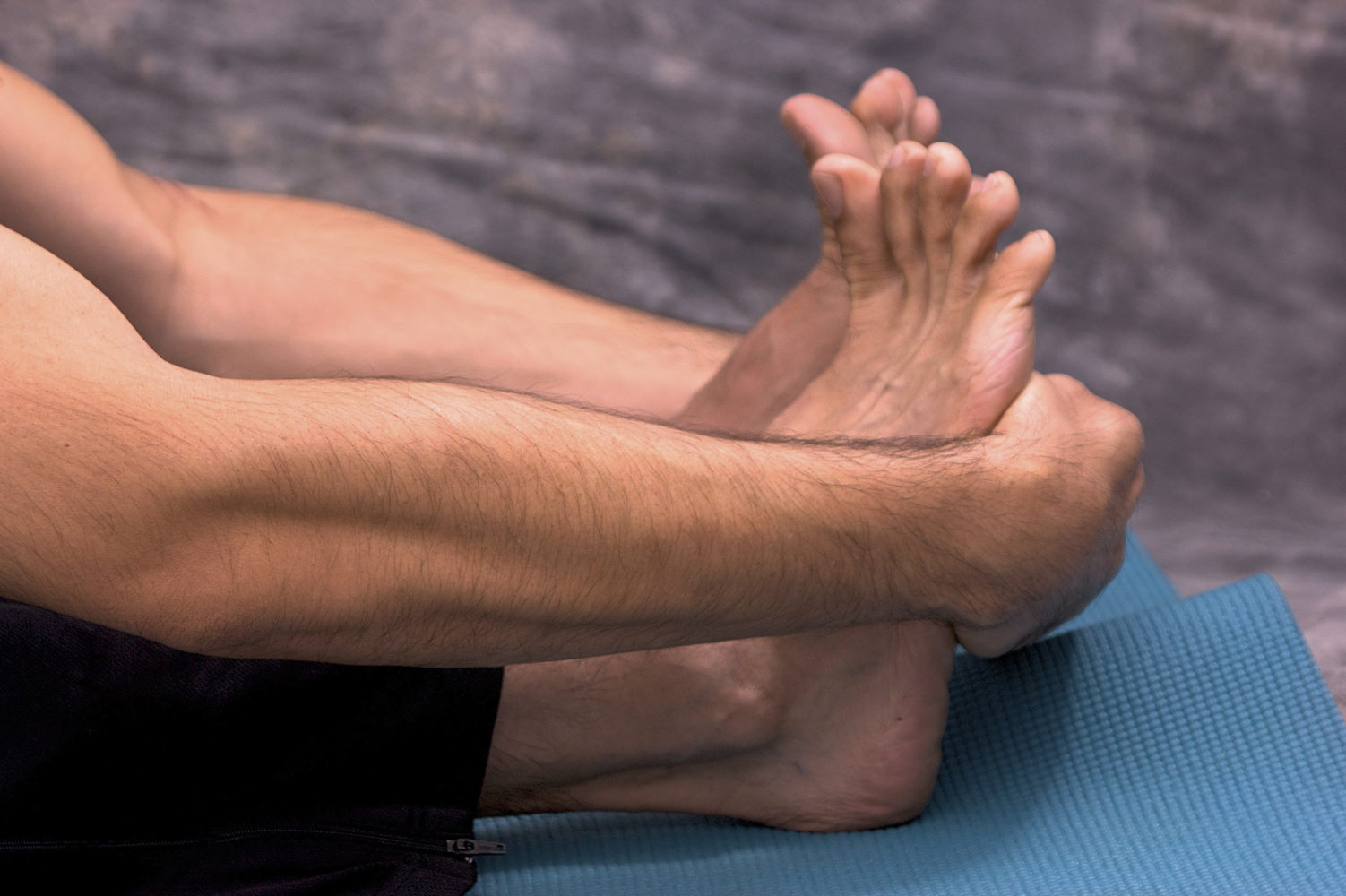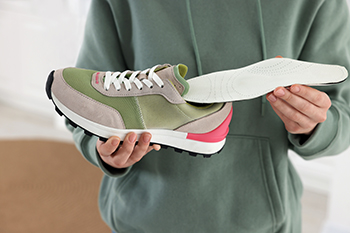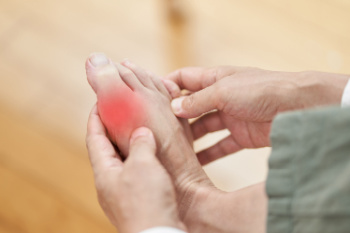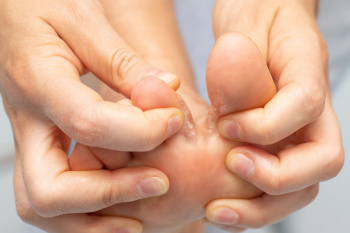Items filtered by date: November 2024
Exercises for Strong and Pain-Free Feet

Simple foot stretches and exercises promote strength, flexibility, and long-term mobility, helping prevent pain and stiffness. Strengthening and stretching the feet can enhance stability, balance, and endurance, making daily activities easier and reducing the risk of injury. One effective exercise is toe curls which involves placing a small towel on the floor, and using your toes to scrunch it toward you, then pushing it away. This strengthens arch and toe muscles, supporting foot mechanics. Another beneficial stretch is the calf stretch. Stand facing a wall, place one foot forward and the other back, keeping the back heel down and leaning forward slightly. This stretch targets the Achilles tendon and calf muscles, reducing tension in the feet. Incorporating such exercises regularly can keep your feet healthy. If you would like to learn more about how you can take care of your feet, it is suggested that you schedule an appointment with a podiatrist who can diagnose any foot or ankle problem, provide treatment, and guide you to additional foot care.
Stretching the feet is a great way to prevent injuries. If you have any concerns with your feet consult with one of our podiatrists from Pennsylvania. Our doctors will assess your condition and provide you with quality foot and ankle treatment.
Stretching the Feet
Stretching the muscles in the foot is an important part in any physical activity. Feet that are tight can lead to less flexibility and make you more prone to injury. One of the most common forms of foot pain, plantar fasciitis, can be stretched out to help ease the pain. Stretching can not only ease pain from plantar fasciitis but also prevent it as well. However, it is important to see a podiatrist first if stretching is right for you. Podiatrists can also recommend other ways to stretch your feet. Once you know whether stretching is right for you, here are some excellent stretches you can do.
- Using a foam roller or any cylindrical object (a water bottle or soda can will do), roll the object under your foot back and forth. You should also exert pressure on the object. Be sure to do this to both feet for a minute. Do this exercise three times each.
- Similar to the previous one, take a ball, such as a tennis ball, and roll it under your foot while seated and exert pressure on it.
- Grab a resistance band or towel and take a seat. If you are using a towel, fold it length wise. Next put either one between the ball of your foot and heel and pull with both hands on each side towards you. Hold this for 15 seconds and then switch feet. Do this three times for each foot.
- Finally hold your big toe while crossing one leg over the other. Pull the toe towards you and hold for 15 seconds. Once again do this three times per foot.
It is best to go easy when first stretching your foot and work your way up. If your foot starts hurting, stop exercising and ice and rest the foot. It is advised to then see a podiatrist for help.
If you have any questions, please feel free to contact one of our offices located in Plymouth Meeting and Ambler, PA . We offer the newest diagnostic and treatment technologies for all your foot care needs.
Benefits of Orthotics for Runners

Orthotics, custom-made or over-the-counter inserts, can be beneficial for runners, often enhancing comfort by providing additional support and cushioning tailored to an individual’s foot shape. This support may reduce the stress on feet, ankles, knees, and even the lower back, allowing for a more comfortable running experience. For some runners, orthotics may also contribute to improved performance. By promoting better alignment and distributing pressure evenly, they may encourage a more efficient stride, potentially translating to better speed. However, the extent to which orthotics impact performance varies greatly and is often specific to individual biomechanics. The impact of orthotics on injury prevention is more complex. If you are a runner and want to enhance your comfort and prevent injuries while running, it is suggested that you visit a podiatrist who can evaluate your specific needs, creating custom orthotics if necessary, and offering guidance on their best use to achieve comfort and support.
If you are having discomfort in your feet and would like to try orthotics, contact one of our podiatrists from Pennsylvania. Our doctors can provide the care you need to keep you pain-free and on your feet.
What Are Orthotics?
Orthotics are inserts you can place into your shoes to help with a variety of foot problems such as flat feet or foot pain. Orthotics provide relief and comfort for minor foot and heel pain but can’t correct serious biomechanical problems in your feet.
Over-the-Counter Inserts
Orthotics come in a wide variety of over-the-counter inserts that are used to treat foot pain, heel pain, and minor problems. For example, arch supports can be inserted into your shoes to help correct overarched or flat feet, while gel insoles are often used because they provide comfort and relief from foot and heel pain by alleviating pressure.
Prescription Orthotics
If over-the-counter inserts don’t work for you or if you have a more severe foot concern, it is possible to have your podiatrist prescribe custom orthotics. These high-quality inserts are designed to treat problems such as abnormal motion, plantar fasciitis, and severe forms of heel pain. They can even be used to help patients suffering from diabetes by treating foot ulcers and painful calluses and are usually molded to your feet individually, which allows them to provide full support and comfort.
If you are experiencing minor to severe foot or heel pain, it’s recommended to speak with your podiatrist about the possibilities of using orthotics. A podiatrist can determine which type of orthotic is right for you and allow you to take the first steps towards being pain-free.
If you have any questions please contact one of our offices located in Plymouth Meeting and Ambler, PA . We offer the newest diagnostic and treatment technologies for all your foot and ankle needs.
What to Do About Gout?

Gout is a type of inflammatory arthritis caused by the buildup of uric acid crystals in the joints, most commonly affecting the big toe. Uric acid, a waste product in the blood, typically dissolves and exits through urine. However, when the body produces too much or the kidneys fail to eliminate enough, it accumulates, forming sharp crystals that cause intense pain, redness, swelling, and warmth in the affected joint. This can lead to sudden, severe pain known as a gout flare-up. To manage gout, a podiatrist may prescribe anti-inflammatory medications, pain relievers, or drugs that reduce uric acid production. Lifestyle changes, like reducing alcohol intake, and limiting foods high in purines, such as red meat, seafood, and sugary drinks, in addition to staying hydrated, can help prevent flare-ups. For chronic cases, long-term medications may be prescribed to keep uric acid levels in check. If you have gout flare-ups, it is strongly suggested that you are under the care of a podiatrist who can help you to manage this painful condition.
Gout is a foot condition that requires certain treatment and care. If you are seeking treatment, contact one of our podiatrists from Pennsylvania. Our doctors will treat your foot and ankle needs.
What Is Gout?
Gout is a type of arthritis caused by a buildup of uric acid in the bloodstream. It often develops in the foot, especially the big toe area, although it can manifest in other parts of the body as well. Gout can make walking and standing very painful and is especially common in diabetics and the obese.
People typically get gout because of a poor diet. Genetic predisposition is also a factor. The children of parents who have had gout frequently have a chance of developing it themselves.
Gout can easily be identified by redness and inflammation of the big toe and the surrounding areas of the foot. Other symptoms include extreme fatigue, joint pain, and running high fevers. Sometimes corticosteroid drugs can be prescribed to treat gout, but the best way to combat this disease is to get more exercise and eat a better diet.
If you have any questions please feel free to contact one of our offices located in Plymouth Meeting and Ambler, PA . We offer the newest diagnostic and treatment technologies for all your foot and ankle needs.
Reminder: When Was the Last Time...?
Managing Athlete’s Foot

Athlete's foot, or tinea pedis, is a fungal infection caused by the same dermatophytes responsible for ringworm and jock itch. It typically affects the skin between the toes. Athlete’s foot thrives in warm, humid environments, making it common among athletes and people who use shared facilities like gyms and pools. Moist socks and shoes can encourage the growth of these fungi. Symptoms often include itching, burning, redness and peeling skin, especially between the toes, and in some cases, blisters may form. While antifungal creams can be effective, persistent or severe symptoms may need medical attention. If you experience intense pain, swelling, or signs of a secondary bacterial infection, such as increased redness or discharge, it is suggested that you schedule an appointment with a podiatrist. They can provide an accurate diagnosis and personalized treatment options.
Athlete’s foot is an inconvenient condition that can be easily reduced with the proper treatment. If you have any concerns about your feet and ankles, contact one of our podiatrists from Pennsylvania. Our doctors will treat your foot and ankle needs.
Athlete’s Foot: The Sole Story
Athlete's foot, also known as tinea pedis, can be an extremely contagious foot infection. It is commonly contracted in public changing areas and bathrooms, dormitory style living quarters, around locker rooms and public swimming pools, or anywhere your feet often come into contact with other people.
Solutions to Combat Athlete’s Foot
- Hydrate your feet by using lotion
- Exfoliate
- Buff off nails
- Use of anti-fungal products
- Examine your feet and visit your doctor if any suspicious blisters or cuts develop
Athlete’s foot can cause many irritating symptoms such as dry and flaking skin, itching, and redness. Some more severe symptoms can include bleeding and cracked skin, intense itching and burning, and even pain when walking. In the worst cases, Athlete’s foot can cause blistering as well. Speak to your podiatrist for a better understanding of the different causes of Athlete’s foot, as well as help in determining which treatment options are best for you.
If you have any questions please feel free to contact one of our offices located in Plymouth Meeting and Ambler, PA . We offer the newest diagnostic and treatment technologies for all your foot and ankle needs.

